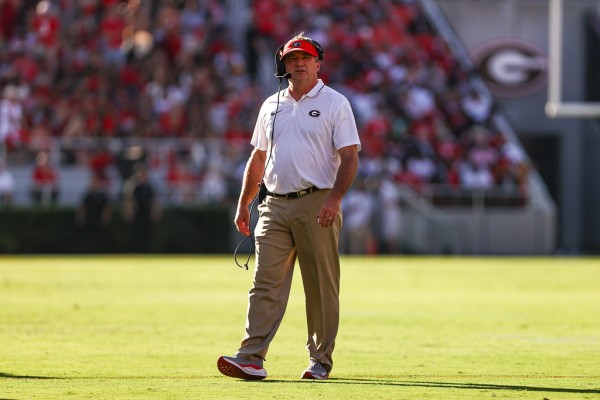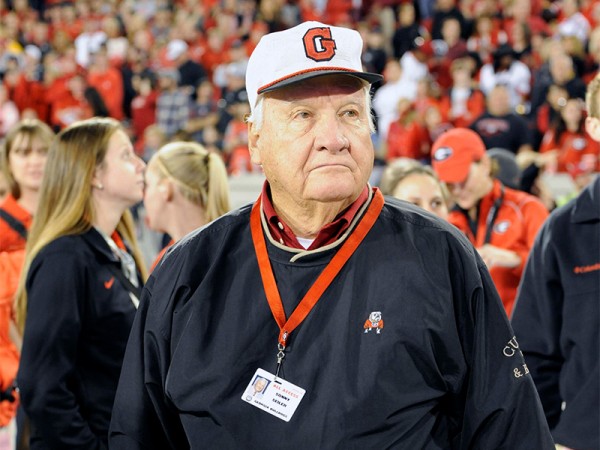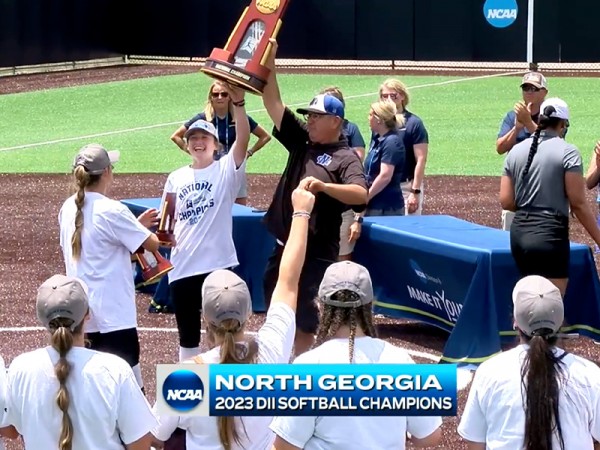KNOXVILLE, TENNESSEE - Phillip Fulmer isn't ready to do what Lloyd Carr did. The Tennessee coach wants to put the Volunteers on top one more time before he's through.
``I want to win another national championship,'' said the 57-year-old Fulmer, who won his lone national title in 1998. ``I don't want to do this forever ... but I want to coach for a good while and get back to the top of that mountain.''
Such a goal proved elusive for Carr, who won the 1997 national title for Michigan in 1997 and a handful of conference titles at a program steeped in tradition and high expectations. The 62-year-old Carr announced his retirement earlier this week after a season that included a loss to Appalachian State and a fourth straight defeat to rival Ohio State.
Like Carr, Fulmer's season has had some very rough spots. The Volunteers lost early to California and were routed by rivals Florida and Alabama.
Fulmer faced more calls for his firing than at any other time in his 16 years as coach, including 2005 when the Vols went 5-6 and missed a bowl for the first time since 1988.
Tennessee athletic director Mike Hamilton answered those cries by saying he wanted Fulmer to ``write the end of his career story.''
Fulmer has responded to the critics by keeping his Vols in the hunt for their first Southeastern Conference Eastern Division title since 2004.
If the 19th-ranked Vols (8-3, 5-2 SEC) win Saturday at Kentucky, Fulmer will have pulled off what seemed unlikely after the Crimson Tide routed his Vols 41-17 in October: they will play for the SEC championship Dec. 1 against LSU.
Maybe that shouldn't be a surprise with a coach who is 145-44 in his career. Among active coaches in charge for more than a decade, Fulmer's .767 winning percentage is best, topping Florida State's Bobby Bowden, Carr and his longtime nemesis Steve Spurrier.
Fulmer came close to a second national title in 2001. All that stood between the Vols and a bid in the national championship game at the Rose Bowl was the SEC title game, but Tennessee lost to underdog LSU 31-20 and wound up in the Citrus Bowl.
Hamilton said he's certain such a record will make fans appreciate Fulmer well after he's no longer coaching. Hamilton, who received hundreds of e-mails following each of Tennessee's three losses, also thinks Fulmer and his staff have been resilient despite the critics.
``I think he's handled it very well,'' Hamilton said. ``He's a very determined person. He's very focused on what the mission is. He loves this institution dearly.''
Fulmer also loves his players, and his eyes sparkle when he talks about his current freshman class.
``We've got a foundation here with the young guys,'' Fulmer said. ``I'm very excited about them, but I'm mostly excited about the leadership on the team, not just the seniors.''
Championship potential aside, Fulmer has plenty of other factors to keep him at Tennessee at least a few more seasons. For one, he is only 29 wins from passing Tennessee's most revered coach, Gen. Robert Neyland, whose 173 victories are the school record.
Fulmer's $2.05 million annual salary, with bonuses for championship appearances and wins, doesn't hurt either.
Through his career, Fulmer has received about $1 million in retention bonuses, though provisions for additional retention bonuses were removed from his contract in 2005. He essentially returned that money to the school with a $1 million donation he and wife, Vicky, made for scholarships and programs.
Unhappy fans grumbled that Fulmer was trying to buy job security with the donation, but Tennessee athletics spokeswoman Tiffany Carpenter said it was a gift the Fulmers had been planning for at least three years and only waited to decide how to allocate the money.
If Fulmer did retire before his contract ends in 2011, he wouldn't owe Tennessee any money. He would owe the school $1 million if he decided to coach at another school before the end of his contract, but he's spent most of his life in Tennessee.
Fulmer grew up in Winchester, Tenn., played offensive guard for the Vols and was an assistant coach at Tennessee for 13 years.
Other than five years at Wichita State and one year at Vanderbilt, Tennessee has been Fulmer's home.
Offensive coordinator David Cutcliffe, who's coached with Fulmer for 19 seasons, said it's inevitable a coach will face hard times after so much time in the limelight. He thinks the best don't take the criticism personally.
``Professionally, it's hard sometimes,'' he said. ``It's not just the winning and losing that gets hard, it's a lot of other things that get hard. But, it's part of the process. It's a great profession.''
Fulmer agrees. He said he still loves Saturdays in the fall and watching players grow up both on and off the field too much to give in to fans who want him fired and reporters who say his career is waning.
``We've had a lot more ups than downs. You ignore what you need to ignore and worry about what you can control,'' he said.
Sunday
August 17th, 2025
3:11PM

















